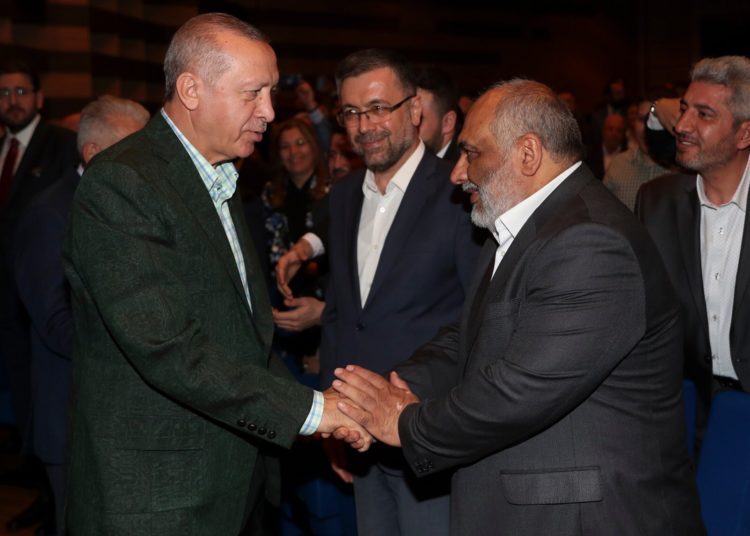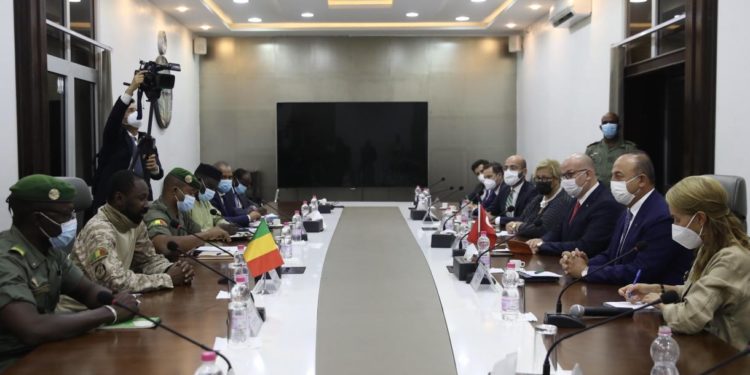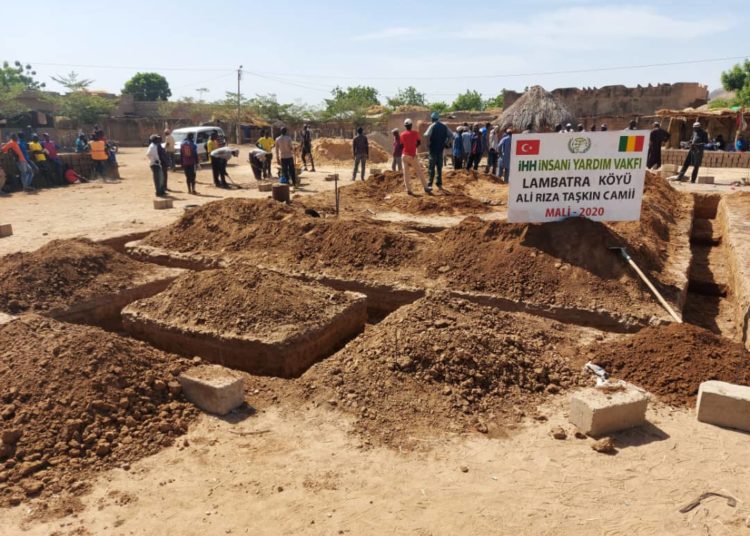Nordic Monitor
A Turkish intelligence-linked charity managed by jihadists has intensified its activities in Mali following the coup in August, which offered a powerful incentive for Ankara to increase its presence in West Africa.
The Foundation for Human Rights and Freedoms and Humanitarian Relief (İnsan Hak ve Hürriyetleri ve İnsani Yardım Vakfı, or IHH), one of the backbones of the political agenda abroad of the government of President Recep Tayyip Erdoğan, announced its ongoing projects in Mali including the construction of four mosques.
NGOs and organizations supported by the Turkish government are building schools and mosque complexes in African countries to spread a radical Islamist ideology and increase Erdoğan’s influence on the continent. Most of those projects are funded by government agencies.
Ankara intends to expand its influence over the transition process in Mali in line with Turkey’s Africa policy. Turkish Foreign Minister Mevlüt Çavuşoğlu was the first high-level, non-African official to visit the Sahel country after the coup in August.
According to its press release, the IHH will construct four mosques and three healthcare centers in the country. Mosques will be built in the capital of Bamako and in Mali’s western province of Kayes.
The IHH is a front charity that is known as a tool of Turkish intelligence agency MİT and has been under investigation by the Turkish police. It was accused of smuggling arms to al-Qaeda-affiliated jihadists in Syria. The IHH was also employed in the transport of wounded Islamic State in Iraq and Syria (ISIS) and al-Qaeda fighters by ambulance from Syria to Turkey.
Besides the front charities, Turkish agencies such as the Turkish Cooperation and Coordination Agency (TIKA), the Presidency for Turks Abroad and Related Communities (Yurtdışı Türkler ve Akraba Topluluklar Başkanlığı, or YTB) diaspora agency, the Yunus Emre Institute and indoctrination and proselytizing entity the Maarif Foundation are the main institutions functioning as the long arm of Turkey’s President Erdoğan in Africa.

On August 18, soldiers mutinied at the Kati military base outside of Bamako and detained President Ibrahim Boubacar Keita, Prime Minister Boubou Cisse and a number of senior military officers and civilian cabinet officials. Keita announced his resignation and the dissolution of the cabinet and the National Assembly on national television.
Foreign Minister Çavuşoğlu visited Bamako on September 9 and met with the members and head of the National Committee for the Salvation of the People as well as Khatir Mahamat Saleh Annadif, the special representative of the UN secretary-general and the head of the UN Multidimensional Integrated Stabilization Mission in Mali (MINUSMA), and Pierre Buyoya, the African Union high representative for Mali.

The Erdoğan government helped save the IHH from legal troubles in Turkey while mobilizing resources and diplomatic clout to back the IHH in global operations.
Nordic Monitor previously released a Turkish police intelligence report positing how the jihadist Libyan Ben Ali group was conducting its illegal activities with help of IHH Vice President Hüseyin Oruç and its then-South and East Anatolian Coordinator Selahattin Ozer. According to the report, the Ben Ali group moved between Turkey and Syria to provide logistical support, purchase arms and transport wounded fighters for al‐Qaeda‐affiliated terrorist organizations in Syria.
The Turkish police also investigated the IHH’s links to al-Qaida, but President Erdoğan halted the case in 2014. According to the investigation into al-Qaeda cells in Turkey, İbrahim Şen (37), a convicted al-Qaeda terrorist who was detained in Pakistan on alleged al-Qaeda links and transferred to Guantanamo, where he was kept until 2005, was running a recruitment and trafficking drive between Turkey and Syria and using the IHH to cover the terror network.
Due to his political cover from the government, Şen was saved from his legal troubles. He was arrested in January 2014 and indicted in October 2014 but let go at the first hearing of the trial in October 2014. Turkish police officers were then dismissed and the investigation was hushed up.
The IHH had also been flagged by Russia as an organization that smuggled arms to jihadist groups in Syria, according to intelligence documents submitted to the UN Security Council on Feb. 10, 2016. Russian intelligence documents even furnished the license plate numbers of trucks dispatched by the IHH loaded with arms and supplies bound for al-Qaeda-affiliated groups including the Nusra Front.
The leaked emails of Berat Albayrak, the son-in-law of President Erdoğan and former finance and treasury minister, also implicated the IHH in arming Libyan factions. The secret document found in leaked emails tells the story of how the owner of a bankrupt shipping and container company asked for compensation from the Turkish government for damage his ship sustained while transporting arms between Libyan ports at the order of Turkish authorities in 2011. The document revealed all the details of a Turkish government-approved arms shipment to rebels in a ship contracted by the IHH.












